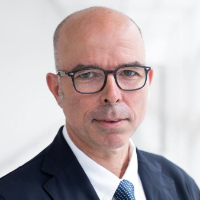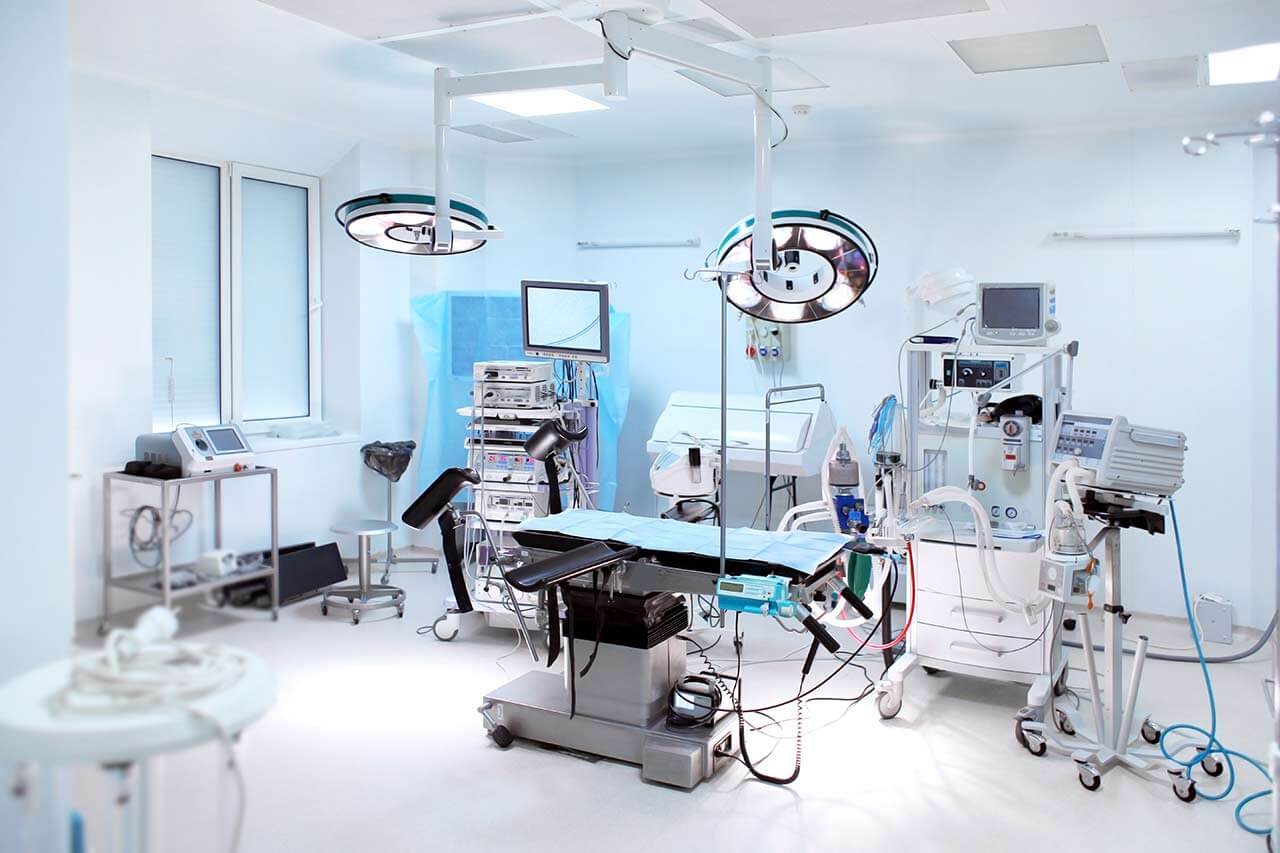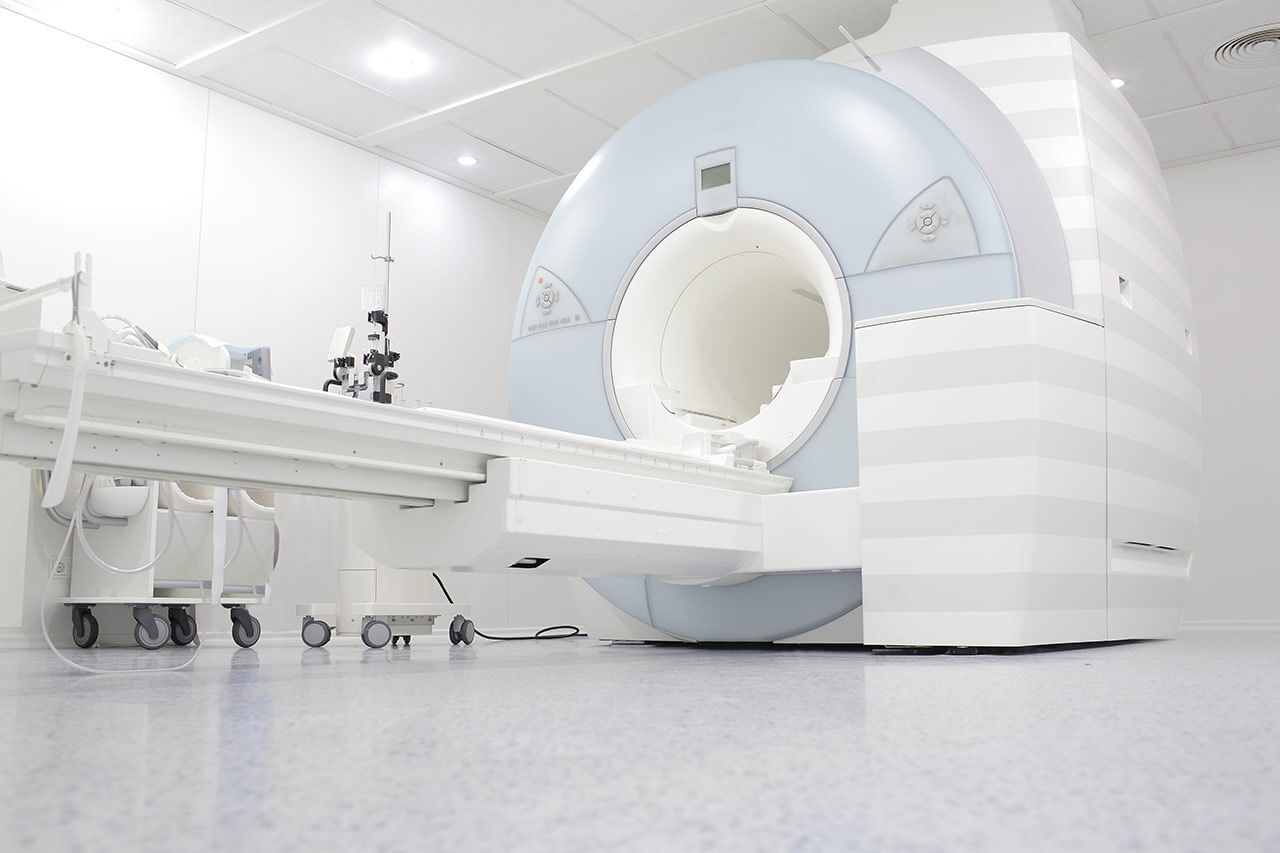
About the Department of Neurology at University Hospital Halle (Saale)
The Department of Neurology at the University Hospital Halle (Saale) provides comprehensive diagnosis and conservative treatment of the entire spectrum of diseases of the nervous system. The department is proud of its powerful diagnostic base. The medical facility performs all currently available electrophysiological studies (electroneuromyography, electronystagmography, electroencephalography, and registration of evoked potentials), extracranial and intracranial ultrasound scans, imaging tests (in cooperation with radiologists), laboratory tests, including cerebrospinal fluid analysis and molecular genetic testing. The treatment regimen for each patient is developed individually based on the results of the preliminary diagnosis. The department provides effective medical care to patients with inflammatory diseases of the nervous system, movement disorders, neuroimmunological pathologies, neuropathies, neuromuscular diseases, cerebrovascular diseases, chronic headaches, and facial pain. Treatment includes the latest medications, physiotherapy, exercise therapy, massage, manual therapy, and other methods. Experienced neurologists with extensive clinical experience are at the service of the department's patients. The specialists regularly demonstrate high treatment success rates, which is why the medical facility enjoys an excellent reputation in Germany and abroad. The Head Physician of the department is Prof. Dr. med. Markus Otto.
Of particular interest to the department's team of doctors is the treatment of neuromuscular diseases. The department operates a specialized center that is certified by the German Muscle Society (DGM). The department's neurologists specialize in the treatment of distal myopathies, metabolic myopathies, limb-girdle muscular dystrophy, myasthenia, amyotrophic lateral sclerosis, spinal muscular atrophy, and mitochondrial diseases. These pathologies cause complex symptoms such as muscle weakness, muscle atrophy, muscle cramps or spasms, muscle pain, spasticity, difficulty walking, coordination disorders, numbness, paresthesia, etc. When a neuromuscular disease is suspected, the patient undergoes a comprehensive diagnosis that includes electromyography, electroneuromyography to assess nerve conduction, blood tests, imaging tests (ultrasound, CT, and MRI scans), muscle biopsy, and genetic testing. Neuromuscular diseases are incurable, so the department's specialists aim to eliminate the symptoms of the pathology as much as possible and to stop or slow down its progression whenever possible. The patient is prescribed an individualized comprehensive treatment regimen that includes drug therapy with various classes of medicines, physiotherapy, occupational therapy, and diet therapy. In some cases, surgical treatment may also be necessary.
The department's team of neurologists is competent in the treatment of inflammatory diseases of the nervous system, such as encephalitis, meningitis, myelitis, encephalomyelitis, and meningoencephalitis. These diseases cause severe symptoms. If the patient is not treated in time, there is a risk of death. Treatment of inflammatory diseases of the brain and spinal cord is based on drug therapy with antiviral drugs, antibiotics, corticosteroids, and other drugs. Treatment is provided in a hospital setting under close medical supervision.
The department's therapeutic options are completed by the treatment of neuropathies. This is a group of pathologies in which one or more parts of the peripheral nervous system are damaged. This neuropathology causes severe pain, weakness, limb numbness, and tingling in one or more parts of the body. In most cases, neuropathy occurs as a result of compression or traumatic damage to the nerve; the development of pathology can also be provoked by autoimmune diseases, decompensated diabetes mellitus, infections, hereditary pathologies, long-term use of cytostatics and immunosuppressants, etc. In order to clarify the diagnosis of suspected neuropathy, the specialists of the department perform clinical examination, laboratory and instrumental tests. Treatment tactics depend on the mechanism of disease development and the severity of symptoms. The primary goal of therapy is to eliminate the cause of the disease and alleviate the symptoms. The neurologists of the department successfully combine drug therapy and physiotherapeutic procedures in the treatment of neuropathies.
The range of medical services provided by the department includes the following:
- Diagnostics and treatment of neuromuscular diseases
- Diagnostics and treatment of distal myopathies
- Diagnostics and treatment of metabolic myopathies
- Diagnostics and treatment of limb-girdle muscular dystrophy
- Diagnostics and treatment of myasthenia
- Diagnostics and treatment of amyotrophic lateral sclerosis
- Diagnostics and treatment of spinal muscular atrophy
- Diagnostics and treatment of mitochondrial diseases
- Diagnostics and treatment of inflammatory diseases of the nervous system
- Diagnostics and treatment of encephalitis
- Diagnostics and treatment of meningitis
- Diagnostics and treatment of myelitis
- Diagnostics and treatment of encephalomyelitis
- Diagnostics and treatment of meningoencephalitis
- Diagnostics and treatment of neuropathies
- Diagnostics and treatment of cerebrovascular diseases
- Diagnostics and treatment of movement disorders of neurological genesis
- Diagnostics and treatment of chronic headaches and facial pain
- Diagnostics and treatment of dementia
- Diagnostics and treatment of neuroimmunological diseases
- Diagnostics and treatment of other neurological diseases
Curriculum vitae
Prof. Dr. med. Markus Otto has been the Head Physician of the Department of Neurology at the University Hospital Halle (Saale) since July 1, 2021 and is also Professor for Neurology at the Faculty of Medicine of the Martin Luther University Halle-Wittenberg. Previously, he worked as a Neurologist at the University Hospital Ulm since 2006 and held the post of Professor for Neurology at the University of Ulm.
Prof. Otto studied medicine at the Universities of Mainz, London, and Zurich. He received his doctorate from the Faculty of Medicine at the University of Mainz in 1995, after which he worked at the University Hospital Goettingen. He was board certified in neurology in 2000, followed by his habilitation and Venia legendi in neurology in 2002. Dr. Markus Otto was appointed W2 Professor for Neuropsychiatric Dementia Research and Head of the Neurochemistry Laboratory in 2005.
Prof. Otto has more than 25 years of successful clinical practice in neurology. He is the author and co-author of more than 430 scientific publications and is a regular speaker at national and international neurology conferences.
Photo of the doctor: (c) Universitätsklinikum Halle (Saale)




